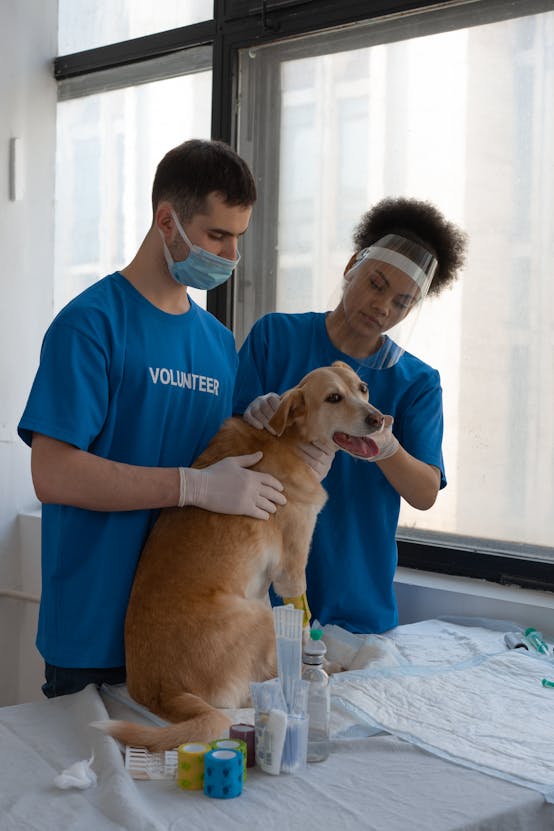Adaptations Enabling Dogs to Thrive in Urban UK Environments
Exploring how city life shapes canine behavior and health
Dogs living in urban environments across the UK have developed distinct urban dog adaptations to cope with city life challenges. Restricted space requires dogs to adjust their activity levels; many urban dogs benefit from shorter, more frequent walks, adapting their natural exercise needs to fit smaller parks and limited outdoor areas. Behavioral changes, such as increased tolerance to noise and crowds, are essential for dogs’ well-being in busy UK cities.
Also to see : What Behavioral Traits Make Dogs Ideal Companions?
The constant exposure to noise pollution from traffic and human activity demands that city living dogs UK become calmer and less reactive to sudden sounds—a vital adaptation to reduce stress. Physiologically, some dogs show enhanced resilience to mild pollutants, although owners must still monitor health closely to avoid respiratory issues common in urban settings.
Examples from across the UK reveal breeds thriving due to these adaptations. Smaller breeds like French Bulldogs or Cavalier King Charles Spaniels often adjust better to compact flats, while more adaptable temperaments prove beneficial for navigating busy streets. These dog adjustments to city life enable many urban dogs in the UK not only to survive but to flourish despite the environmental constraints.
In the same genre : How Do UK Dogs Adapt Their Behavior to City Living?
Common Challenges for Dogs in UK Cities
Living in UK cities presents distinct urban dog challenges that affect a dog’s wellbeing. Noise pollution from traffic, construction, and crowds is relentless, often leading to heightened stress levels in dogs. Prolonged exposure can cause anxiety, triggering behaviors such as excessive barking or withdrawal.
Limited green spaces further complicate life for city dogs. Without ample grassy areas for exercise and play, dogs may not burn off energy appropriately, impacting both their physical and mental health. Bathed in urban environments, dogs face restrictions that urban dwellers might overlook, such as fewer opportunities for off-leash socialisation.
Navigating busy streets poses safety risks, including dangers from traffic and crowded pavements. City dog owners must be vigilant against hazards like litter and pollutants that can harm dogs’ respiratory health. These factors combine, influencing overall safety and socialisation opportunities crucial for dogs’ happiness and development.
Understanding these noise and space issues for dogs in UK cities helps owners adapt routines and environments, improving their pets’ quality of life despite urban limitations. Through careful management, owners can mitigate stress and foster a secure, enjoyable experience for city dogs.
Breeds Most Suited to Urban Living in the UK
When choosing the best dog breeds for UK city living, consider traits like size, temperament, and adaptability. Small dog breeds urban UK environments favour tend to be compact, low-energy, and sociable. These dogs cope well with limited space and frequent interactions with people and other pets.
Popular choices for city dwellers include French Bulldogs, Cavalier King Charles Spaniels, and Pugs. These breeds are known for their calm demeanour and manageable exercise needs, making them ideal for apartment living. Additionally, breeds like Dachshunds and Jack Russell Terriers thrive in urban settings, provided they receive regular mental and physical stimulation.
When selecting city-suitable dogs, it’s important to evaluate their noise levels and socialisation ease. Dogs that are prone to excessive barking or anxiety may struggle in busy UK cities. Also, consider adopting from shelters where many suitable city breeds need homes. Adoption offers a responsible way to find a dog that matches your lifestyle.
Choosing small dog breeds urban UK residents can easily care for enhances both your wellbeing and the dog’s happiness. Balancing these factors ensures a positive city pet ownership experience.
Essential Owner Practices for Urban Dog Care
Urban dog care UK demands thoughtful routines that suit city life’s unique challenges. Prioritising exercise and socialisation for city dogs ensures their physical health and mental wellbeing, crucial in busy, confined environments. Regular walks in dog-friendly parks or designated areas help meet exercise needs. Many UK cities now offer green spaces and off-leash zones, making it easier to provide varied physical activity.
Socialisation opportunities also play a pivotal role. Urban dogs encounter diverse people and animals; controlled meet-ups at dog parks encourage positive interactions, reducing anxieties linked to city sounds and crowds. Training classes and group walks enhance social skills safely within urban settings.
Urban dog diet UK requirements often differ. City dogs may expend less energy indoors but face different stressors. Owners should adapt meals to maintain optimal weight and health, balancing high-quality proteins with necessary micronutrients. Meal routines adjusted to daily activity levels can prevent obesity and digestive issues common among city dogs.
Combining these practices—tailored exercise, socialisation, and diet—helps urban dog owners in the UK maintain happy, healthy companions equipped for city living challenges.
Expert Guidance and UK-Specific Resources
Understanding the best support for your dog in the UK
For dog owners seeking expert dog care tips UK, connecting with UK dog welfare organisations offers invaluable guidance. These organisations provide resources tailored to the unique needs of British pets, especially regarding urban living. Understanding local environments improves your dog’s well-being and safety.
Advice from UK animal behaviour experts
UK animal behaviour experts emphasize the importance of consistent training and socialisation. They recommend routines adaptable to the urban pace, focusing on mental stimulation and regular exercise. Experts also highlight recognising stress signals common in city dogs, enabling timely intervention to prevent behavioural issues.
Local authority regulations and recommendations
Local authorities across the UK enforce regulations to ensure dogs’ safety and welfare, such as licensing, leash laws, and designated off-leash areas. These regulations are designed to promote responsible ownership and reduce conflicts with neighbours. Staying informed about local rules helps maintain a harmonious community environment.
Support from dog charities and community groups
Dog charities and community groups across the UK offer support networks, training workshops, and rescue services. They provide education on health, nutrition, and behaviour tailored to British contexts. Engaging with these groups fosters a supportive environment where owners can share advice and experiences, strengthening community bonds.



